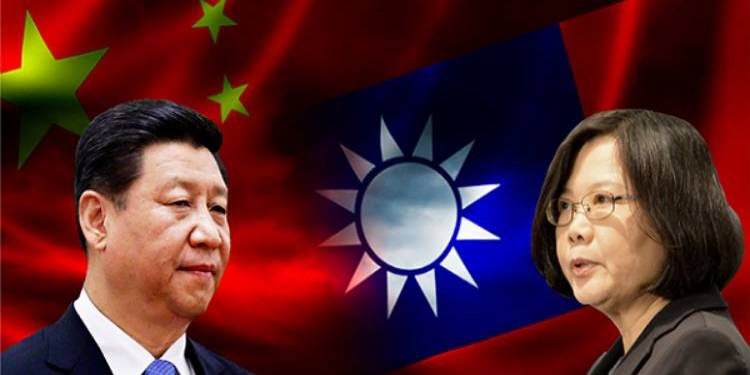Taiwan has emerged as an antidote to China’s callous, lethargic and opaque response to the Wuhan coronavirus and showed the world how to contain the highly contagious virus. The country’s successful battle against the virus has greatly improved its standing in the international diaspora and now there are growing calls in Taiwan to amend or entirely draft a new constitution to reflect the present day scenario and erase the mention of China from Taiwan’s constitution.
The Chinese Communist Party likes to live in an alternate universe as it continues to claim that Taiwan is a part of China where in reality, Taiwan has been an independent nation which has been running its own governments since 1949. China believes that Taiwan must be brought back to its fold and won’t hesitate to apply force if needed. Now, a pro-independence group in Taiwan is trying to erase any links to China from Taiwan’s constitution which will greatly spook the Chinese Communist Party.
Koo Kwang-ming who is a former adviser to Taiwanese President Tsai Ing-wen, founded a group, Taiwan New Constitution Foundation as he pushes for a referendum on drafting a new constitution. The referendum has already crossed 3,000 signatures, hence surpassing the 1,931 signatures required by the law for the first phase of the proposal.
As per the country’s Referendum Act, the process for holding a referendum involves three stages: a proposal, endorsement and voting. The referendum has passed the proposal stage, and to pass the endorsement stage, it would require at least 290,000 signatures within a span of 6 months and if passed, voting will be held.
The referendum will only be valid if 50% turnout of qualified voters is recorded and for it to be adopted a quarter of Taiwan’s population which will roughly amount to 5 million people who will have to vote ‘yes’.
Taiwan’s opposition Nationalist Party perhaps under pressure from the CCP has already voiced its objection towards any calls for independence. It is important to note that the current Taiwan President Tsai Ing-wen won on the plank of being staunchly pro-democracy and completely independent from China. Tsai’s predecessor who was from the Nationalist Party saw Taiwan tilt towards China with the country even allowed to be a part of the WHO’s meetings as there were growing fears that the Nationalist Party will give in to the CCP and integrate Taiwan into China.
Tsai in her first term changed everything and developed Taiwan for the better which has greatly angered China which has deployed its propaganda machinery like the WHO to target and isolate Taiwan. Under her tenure, Taiwan has managed to establish its own identity. “Thirty years ago, only 13% of people regarded themselves as Taiwanese and non-Chinese. In 2020, that number has climbed to 83%,” said Lin Yi-cheng, the executive director of the Taiwan New Constitution Foundation.
Taiwan’s constitution which was drawn up in 1946 mentions China, Mongolia and Taiwan under the jurisdiction of the Republic of China (Taiwan’s official name), which is not the case since the past 60 years as both the regions are being ruled separately.
Predictably, China tried to bully Taiwan as Taiwan Affairs Office spokeswoman Zhu Fenglian said, “The separatist activities will only push Taiwan into an extremely dangerous abyss and bring profound disaster to the vast number of Taiwan people.”
Taiwan hit back at the CCP as its Mainland Affairs council issued a statement which read, “the referendum is a manifestation of the political rights and direct public opinion that Taiwan citizens deserve.”
Tsai’s first term which began in 2016 saw her promise to overhaul the constitution so that it reflects Taiwan’s political reality. Tsai’s Democratic Progressive Party government has chosen to remain silent on this issue as it weighs the benefits and the disadvantages of entertaining such a proposal.
“If she ignores the referendums, she will come under constant pressure from the hardline camp, and if she seriously considers taking action and instituting a new Taiwan constitution, she will risk a confrontation with Beijing, the consequence of which could be a cross-strait conflict,” said an anonymous official.
It remains to be seen whether Tsai would encourage the referendum which will enrage the Chinese Communist Party.
